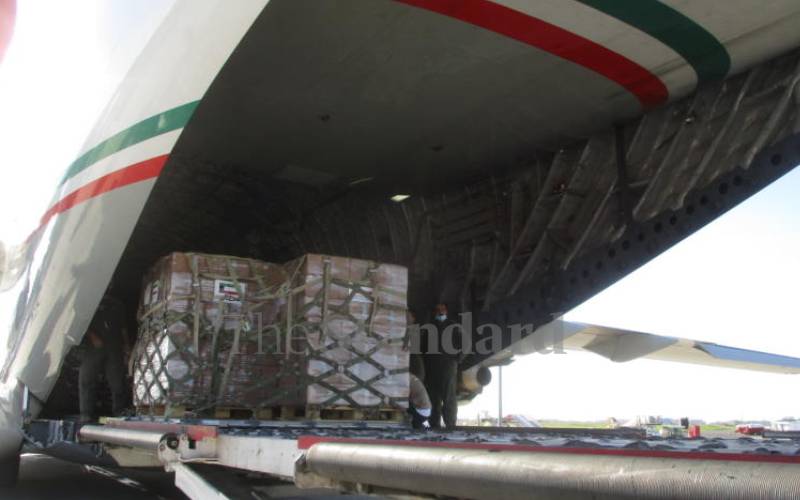×
The Standard e-Paper
Smart Minds Choose Us

Relief food from Kuwait at the JKIA, January 2022. [Wilberforce Okwiri, Standard]
Covid-19 has taught us many things. In the humanitarian sector, the pandemic has reinforced the essential role local actors, including governments, community-based organisations, local NGOs and communities play in humanitarian response.